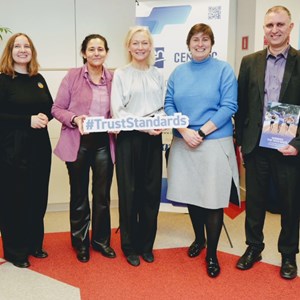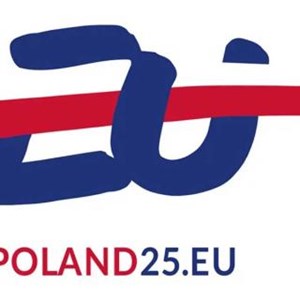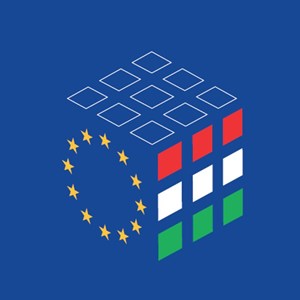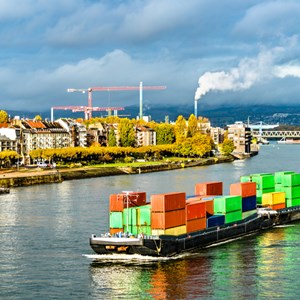Brussels, 9 June - With the publication of the Net-Zero Industry Act, the EU took a decisive step to support the strategic technologies that will be essential to power the green transition and equip the European industry with the tools to lead this transformation. A stakeholders’ workshop organised by CEN and CENELEC on Thursday 8 June explored how standards can drive the future of CleanTech in Europe.
The Net-Zero Industry Act aims to boost investment in clean technologies in the EU, with the goal of reaching at least 40% of annual deployment needs by 2030 for designated strategic net zero technologies. The European Standardization System has the potential to facilitate the uptake of such technologies by providing up-to-date standards that can enable trust, quality and coherence across the Single Market.
To explore these opportunities and challenges in depth, on 8 June 2023, CEN (the European Committee for Standardization) and CENELEC (the European Committee for Electrotechnical Standardization) held a high-level workshop on ‘Standards: Driving the Future of Clean Tech’ in Brussels.
The full-day event was opened by a video message from Annika Andreasen, CEN Vice-President Technical, and a welcoming speech from Elena Santiago Cid, Director General of CEN and CENELEC.
This was then followed by a keynote speech from Joaquim Nunes de Almeida, Director Mobility and Energy Intensive Industries at DG GROW, who elaborated on the goals of the Green Deal Industrial Plan and the Net-Zero Industry act, while providing insight on the role that standards will play in its implementation. Mr. Nunes de Almeida stated that " the best legislation and policy are toothless unless we have the standards to ensure that products are safe, interoperable and competitive at the international level."
The first panel was dedicated to a discussion on Standards for Clean Technologies and Renewables. It saw the participation of Suzana Carp, Deputy Executive Director of Cleantech for Europe; Florian Chapalain, European Public Affairs Manager of Ballard Power Systems; Nerea Ruiz, Policy Director of ECOS; and Ronald Boon, Chair of CEN and CENELEC Strategic Advisory Body on Environment (SABE). The panellists touched on the role of the Net-Zero Industry Act in channelling investments into the key technologies needed to transition to climate neutrality, how to build up manufacturing capacity in Europe, and the need to have a wider range of expertise involved in designing standards for clean tech solutions.
Wouter Schiferli, Senior Flow Assurance Engineer from EBN, then gave a presentation on Porthos and Aramis, two advanced projects on Carbon Capture and Storage (CCS) in the Netherlands, emphasising the contribution of standards to helping these projects grow. He was followed in turn by a panel discussion on the role of standardization in mainstreaming the use of Carbon Capture and Storage in Europe, with contributions from Per-Olof Granström, Secretary General of Zero Emissions Platform (ZEP); Paolo Testini, Senior Vice President CCS and Carbon Removal at Snam; Milan Elkerbout, Research Fellow at CEPS; and Koen Kobes, Energy Consultant at NEN, the Dutch National Standardization Body.
The final panel, dedicated to the European Year of Skills, took a broader look at the skills needed for the future of the clean technology sector and in standardization. Panellists included Judith Kirton-Darling, Deputy General Secretary of IndustriALL; Päivi Brunou, Managing Director at METSTA; Andrei Bunis, Policy Officer Skills for Industry at DG GROW, European Commission; Maxime Cerutti, Director Social Affairs at BusinessEurope; and Mareen Tiedemann, Project Manager at Stiesdal and Member of Next Generation DKE.
The event was concluded by Ettore Piantoni, Vice-Chair of the CEN and CENELEC Sector Forum Energy Management & Energy Transition (SFEM), and Ronald Boon, the Chair of CEN and CENELEC SABE, who provided a wrap-up and outlined the next steps. In his concluding remarks, Mr Piantoni emphasised that “standards are powerful instruments that represent the best practices of European industry.”
CEN and CENELEC are strongly committed to the twin transition and the move towards climate neutrality in Europe. This stakeholder’s workshop was just one of many initiatives in support of these goals. The twin transition is a core driver of the joint CEN and CENELEC Strategy 2030, and both organisations are driven to provide the technical solutions that can increase the uptake of clean technologies in Europe.

Giovanni COLLOT
gcollot@cencenelec.eu



